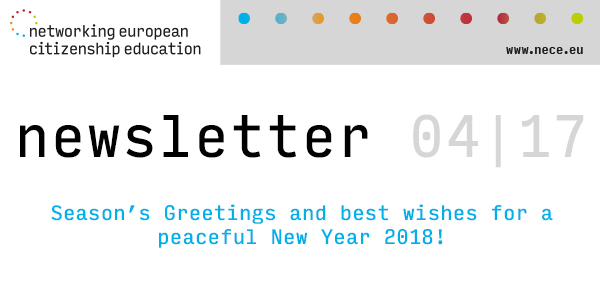 |
|||||||||||||||||||||||||||||||||||||||||||||||||||||||||||||||||||||||||||||||||||||||||||||||||||||||||||||||||||||||||||||||||||||||||||||||||||||||||||||||||||||||||||||||||||||||||||||||||||||||||||||||||||||||||||||||||||||||||||||||||||||||||||||||||||||||||||||||||||||||||||
 |
Follow NECE on twitter and linkedIn. | |||||
| NEWS around NECE | ||||||
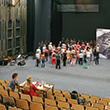 |
NECE 2018 in Marseille: Great expectations (Save the date!)
As announced in our last Newsletter, NECE 2018 will be held in Marseille, September 6 – 9, 2018. Our meeting will take place in a defining time for Europe and its democracies – with Brexit only a few months away and the European elections looming in May 2019: more questions than answers about the future of European democracies.
Our preparations are well under way: we visited the conference location Friche La Belle de Mai in November and received a lot of inspiration regarding formats and contents of the conference. A programming committee of NECE partners and members of the Advisory Board has been formed and will meet in January 2018. Presently we envisage NECE 2018 to act along four basic lines:
|
|||||
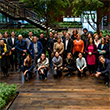 |
NECE Expert Workshop 2017: "Fragility and Resilience of Democracies in Europe. Where now for Citizenship Education and Civil Societies?" - Review
On 12-13 November 2017, this years’ NECE expert workshop was held in Gdansk, Poland. The workshop brought together NECE partners and European experts, intellectuals, and practitioners, among them Ivan Krastev, Karolina Wigura, Jan Sowa, Edit Inotai, Marek Cichocki, Marc Soignet and Wolfgang Merkel. The diversity of perspectives and backgrounds will serve to shape a transnational agenda for civic educators and civil society in times of change and uncertainty. Conclusions and papers of the workshop are part of the preparations for the next NECE conference in Marseille in September 2018. |
|||||
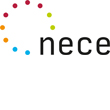 |
Meetings of NECE Partners and of Advisory Board September 2017
In September the NECE partners (among them new partners from Luxembourg and France) as well as the new advisory board (see NECE newsletter 3/2017) met in Berlin and discussed ways forward for NECE as a platform and as an emerging network facing much more complex challenges than in 2004 when it was founded. Both meetings have produced a great wealth of suggestions and ideas for NECE’s further development, among them proposals towards a decentralisation of our work, the inclusion of new partners and members of the Advisory Board in our work and a critical rethinking of issues such as ownership, partnership and inclusivity. The 'networking' of NECE is moving step by step in the direction of a 'network’. |
|||||
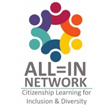 |
The Hard to Reach Focus Group is now ‘All=In Network’ – Citizenship Learning for Inclusion and Diversity
The All=In Network grew out of the NECE Hard to Reach Learners Focus Group, which was run by the bpb between 2012 and 2016. The emerging new network is coordinated by Khalid Mahmood and Adam Newman Turner from the School Development Support Agency in Leicester, a partner and co-founder of the former NECE Focus Group. The new All=In network is keen to make contact with anyone working to improve inclusion in citizenship learning. |
|||||
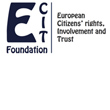 |
Summer University on European Citizenship 2017: Countering threats to European Citizenship across borders, reconfiguring its future
From 30 August to 1 September 2017, 75 participants met in Brussels for the second edition of the summer university on European Citizenship organised by ECIT Foundation (European Citizens’ rights, Involvement and Trust). The main objective was to bring together researchers, civil society representatives and officials to discuss the future directions of European citizenship in the context of the multiple crises facing Europe. The report is a summary of three days of intensive brainstorming, a public debate on the evening of the second day and a number of parallel events organized by partner organisations. In the session “Education for European Citizenship” a representative of NECE (Sigrid Steininger) was given the opportunity the present the network and its various activities as well as to discuss some challenges for citizenship education. A report on the whole meeting is now available here |
|||||
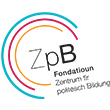 |
Luxembourgish Centre for Citizenship Education (ZpB) – New Website
The partner of NECE, the Luxembourgish Centre for Citizenship Education (ZpB) has launched its new website (in French and German). From now on you’ll find online information about its mission, workshops, teaching material, teacher trainings, conferences, expositions and democratic school structures. Have a look, explore and contact the Centre if you have any questions. |
|||||
| FACING POLITICS | ||||||
|
This is a new section of the newsletter where we invite NECE partners and members of the Advisory Board to send us assessments and analyses of the changing political landscape we are confronted with. |
||||||
|
Terezie Vávrová, Civic Education Centre, Czech Republic
Yet again: Getting to know the Czech version of Populism |
||||||
| GOOD PRACTICE: IDEAS & EXAMPLES | ||||||
 |
The Good Lobby – skill-sharing community The Good Lobby is a first of its kind skill-sharing community that was founded in 2015 by Alberto Alemanno and Lamin Khadar. It is an independent non-profit organization that is run entirely by volunteers with the dual mission to promote civic engagement while strengthening civil society in Europe and beyond. The Good Lobby will connect academics and professionals to non-profit organizations to make their voices heard. We also recommend the book “Lobbying for Change: Find your voice to create a better society” of Alberto Alemanno. Find out more about The Good Lobby |
|||||
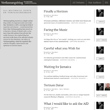 |
Verfassungsblog (On matters constitutional) – a transnational forum
We highly recommend taking a closer look at a Blog edited by the German writer, journalist and lawyer Maximilian Steinbeis in cooperation with the Center for Global Constitutionalism at the WZB Berlin Social Science Center and the Law in Context research network at the Wissenschaftskolleg zu Berlin - Institute of Advanced Studies. |
|||||
 |
ICCS 2016 reveals increase in students’ civic knowledge, with persisting gaps across and within countries
The IEA’s International Civic and Citizenship Education Study (ICCS) 2016 reveals students’ civic knowledge has increased across participating countries since the previous study in 2009. The proportion of students achieving at the two highest levels on the ICCS civic knowledge scale increased from 61 to 67 percent. Internationally, girls displayed higher levels of civic knowledge than boys did, and student socioeconomic background was found to be a key predictor of civic knowledge in all participating countries. |
|||||
 |
Citizenship Education at School in Europe – the new Eurydice report 2017
What is citizenship education? Did you know that in some countries it is taught as a separate subject, whilst in others not? Or that around half of the countries have provisions promoting teachers' competences in citizenship education? The new Eurydice report on citizenship education in Europe presents a full picture of what policies exist to regulate citizenship education across Europe. |
|||||
| POLITICS & POLICIES & CITIZENSHIP EDUCATION | ||||||
|
Finding political identities in Europe by Alistair Ross
“What are the political attitudes of young Europeans (12 - 20 years)? The current and future political and social participation of young people in the European project is critical to the long-term success of the Union. My qualitative study of the views of some 2000 young people, in over 100 locations across 29 EU and Candidate states, was through 350 group discussions about how they construct their political/locational identities.” |
||||||
|
Citizenship Education – Konzepte, Anregungen und Ideen zur Demokratiebildung
This publication aims to empower citizens able to act in existing political, economic and social systems and, in addition, to analyse structures of power, to form a critically-reflected judgment and to actively participate in political processes. It also discusses how social and political participation can be facilitated and accompanied by political didactics. |
||||||
| EURO-MED COOPERATIONS | ||||||
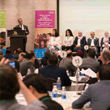 |
Regional Launch of the Life Skills and Citizenship Education Conceptual and Programmatic Framework
The report of the regional launch of the Life Skills and Citizenship Education (LSCE) Conceptual and Programmatic Framework in Amman (Jordan) provides an overview of key messages and outcomes of the launch, drawing on the presentations and panel discussions. On 10 October 2017, UNICEF and partners launched the LSCE Conceptual and Programmatic Framework (CPF), a roadmap to guide policies, strategies and programmes on life skills and citizenship education supporting the region-wide efforts to provide children and youth with opportunities to learn, transition from childhood to adulthood, move from school to work settings, and become responsible and active citizens of their communities. |
|||||
| CALLS | ||||||
|
Call for papers for the CiCea / CitizED Conference 2018
The 2018 International Children’s Identity and Citizenship European Association (CiCea) is the 20th conference and 2nd joint conference with CitizED. The conference theme is ‘Citizenship & Identity in a ‘post-truth’ world’ and will focus on the discourse, research and praxis related to this theme. Deadline for the submission of papers is Friday 22nd December 2017. |
||||||
|
What is your idea for democracy in Europe? Call for ideas/projects
Advocate Europe, a project realised by MitOst and Liquid Democracy, funded by Stiftung Mercator, supports civil society actors who seek financing and support to realise sustainable non-profit ideas. We encourage you to think about what keeps democracy vital: How can we inspire political change and political structures effectively? How do we need to change our interactions in societies? Advocate Europe are open to receiving practical ideas from diverse fields and disciplines. Special attention will be given to ideas based on unusual partnerships. Share your idea until 16 January 2018. |
||||||
|
Education on Europe – Project of the Robert Bosch Stiftung
The growing importance of the European Union for policy making shines a spotlight on the need for European Citizenship Education. Active European Citizenship requires an understanding of how politics works on the European level. Educational programs in this field do not reach enough young people. Education on Europe is a program for citizenship educators on European issues. The program aims to create, try out and evaluate new approaches to make European integration and EU politics more accessible to learners. It fosters the emergence of concepts to reach young people not usually included in European political thinking. Apply until 29 January 2018. |
||||||
| EVENTS | ||||||
|
25th EUROCLIO Annual Conference and Professional Training and Development Course: Mediterranean Dialogues
Marseille (France), 21 – 26 April 2018 The Mediterranean Sea has often been depicted as the cradle of world civilisations. Today, unfortunately, the Mediterranean Basin is the theatre of a humanitarian crisis that has challenged the collective leadership around the sea. To understand the current challenges around the Mediterranean, history, heritage, and citizenship education has a key role to play. That is precisely the reason why EUROCLIO and APHG have decided to choose “Mediterranean Dialogues: Teaching History beyond our Horizons” as the theme for its 25th Annual Conference. Find out more here |
||||||
|
Fundamental Rights Forum
Vienna (Austria), 25 – 27 September 2018 The European Union Agency for Fundamental Rights will convene the second Fundamental Rights Forum from 25-27 September 2018 in Vienna under the overarching theme of ‘belonging’’ in order to: connect, reflect and act. Find out more here |
||||||
| Wanted: Your Contribution to the NECE Newsletter! | ||||||
| You are involved in citizenship education in Europe or North Africa? You are running projects aimed at promoting democratic values and tolerance in your country or region? You think NECE (and the readers of this Newsletter) should know about your project and you want to enlist their support/advice? Tell us about it! We love hearing from you! Send your contributions, ideas, comments, and questions to: nece@lab-concepts.de | ||||||
|
You can find more current publications on citizenship education in Europe at the NECE website. |
||||||